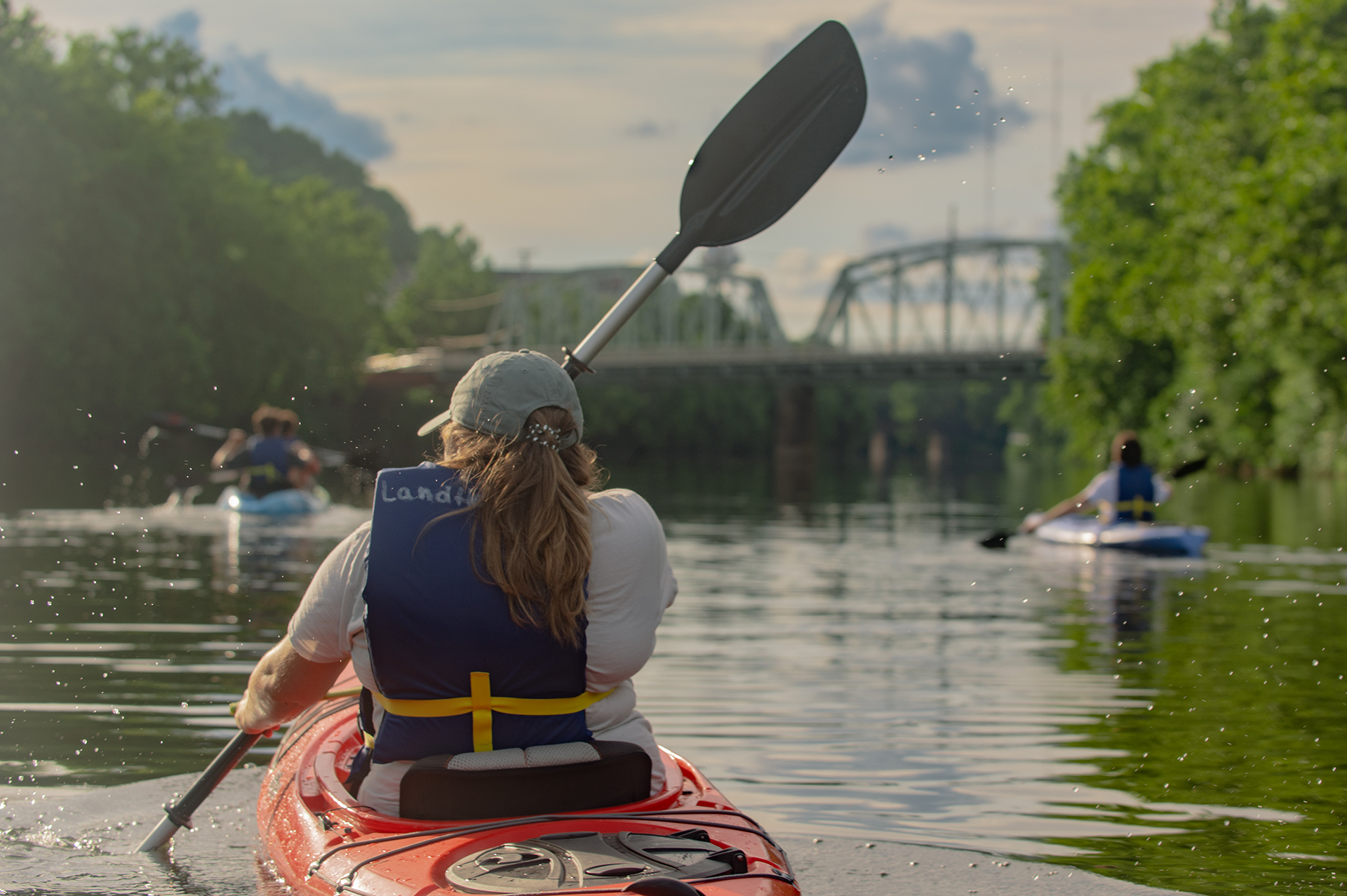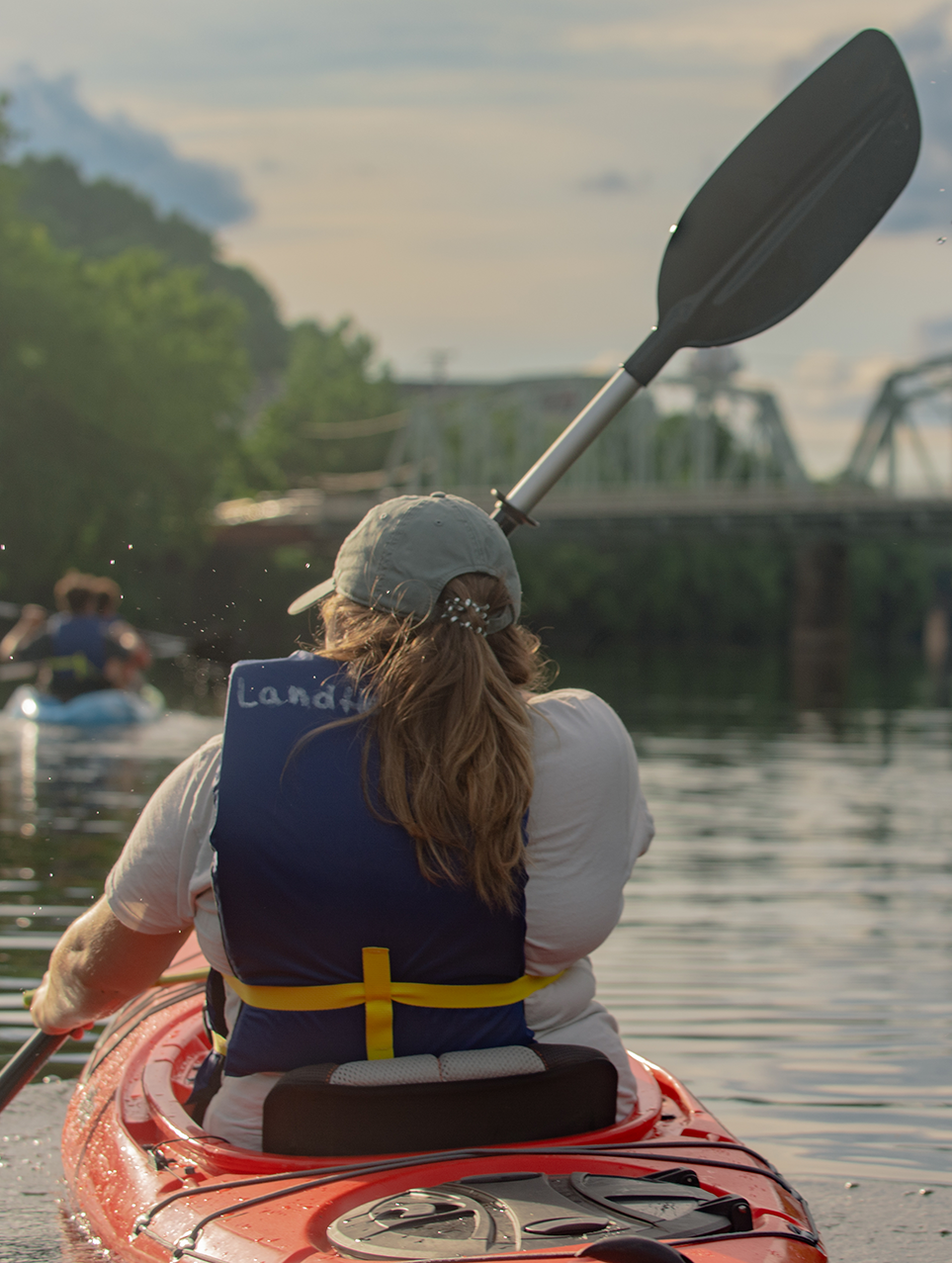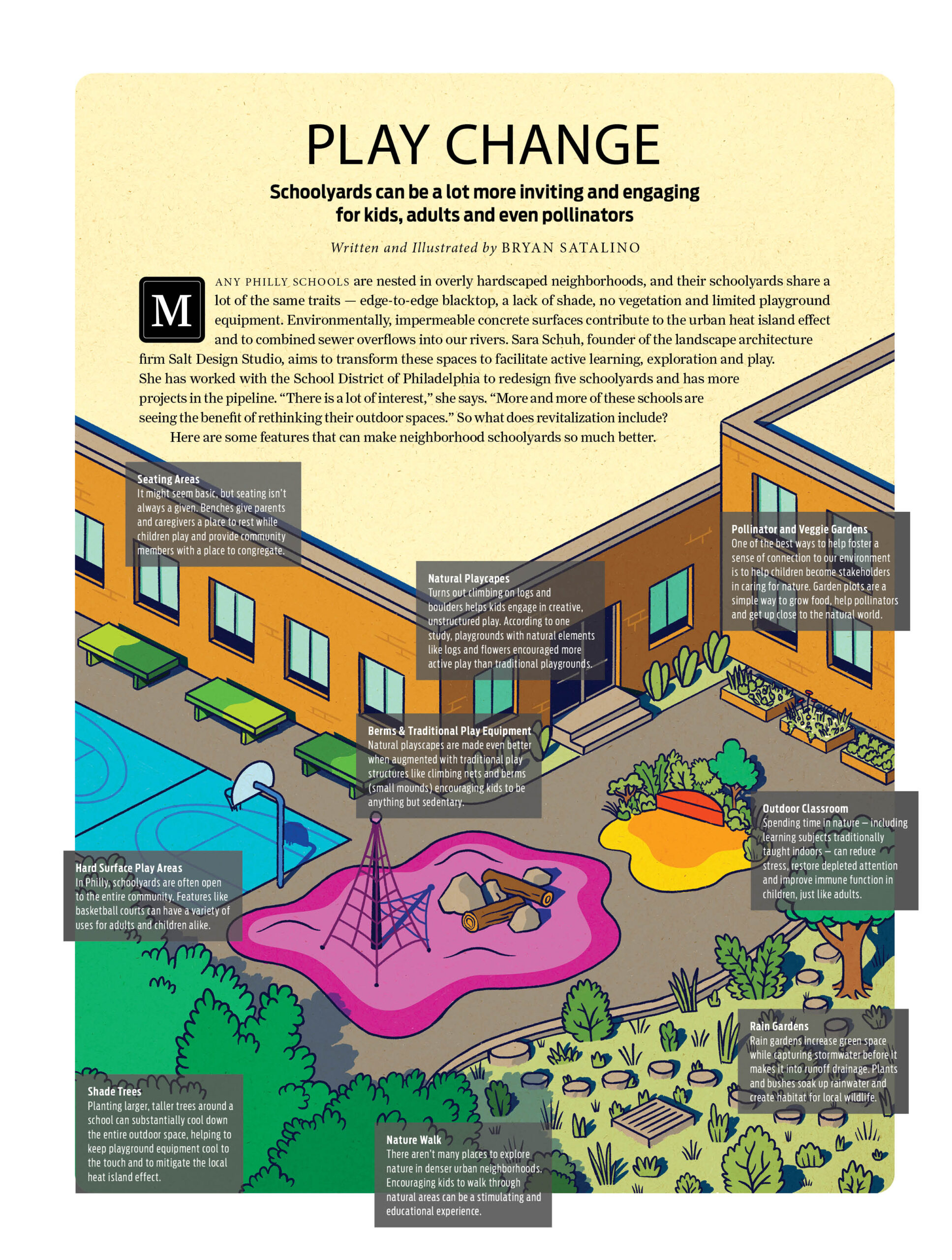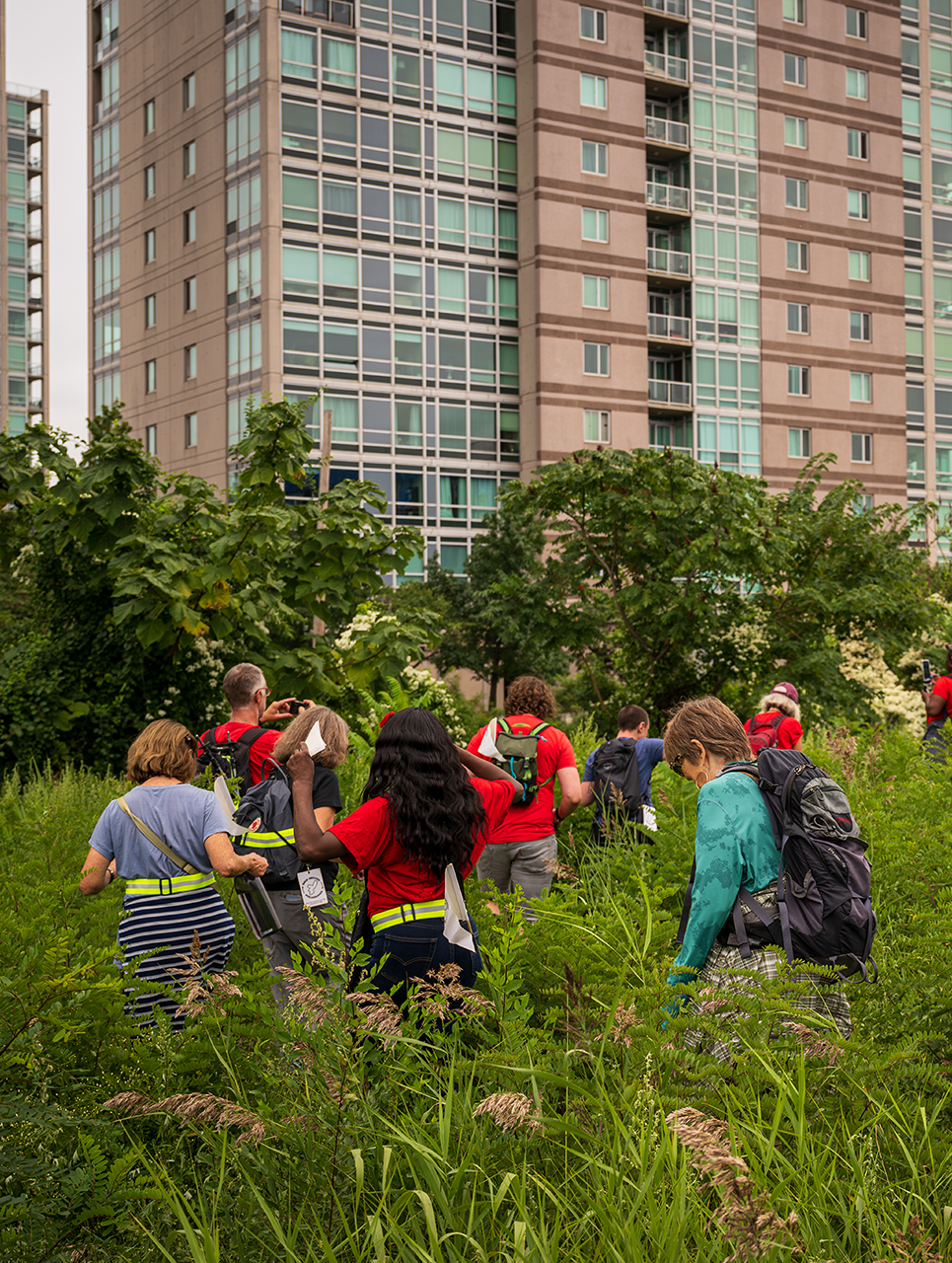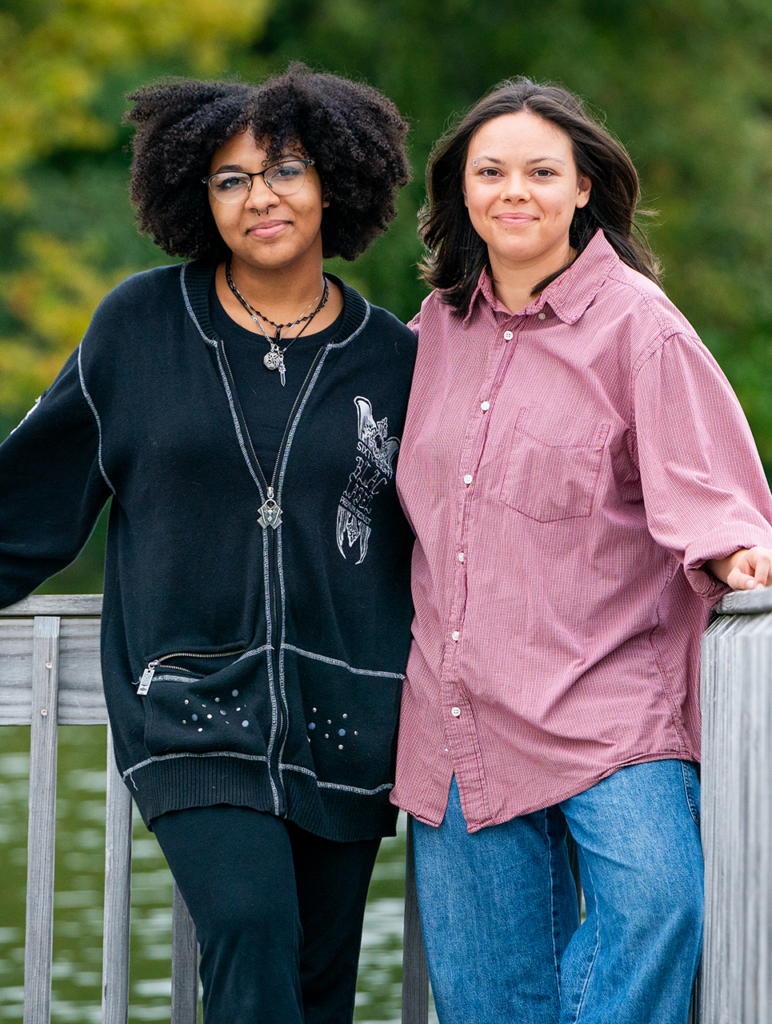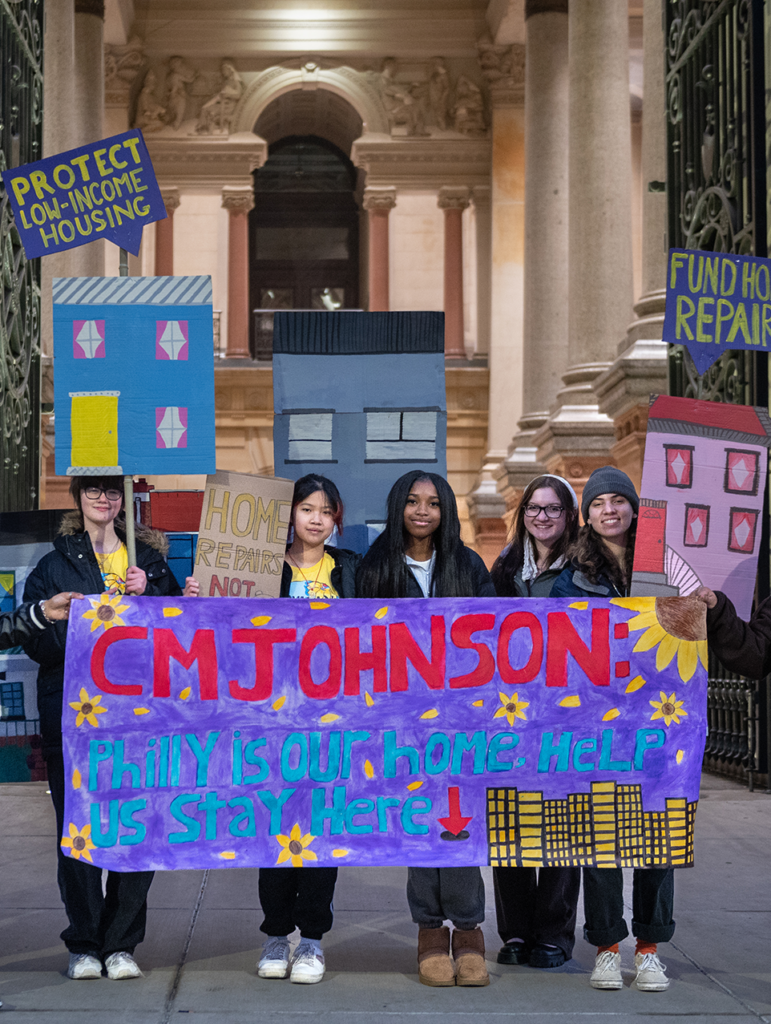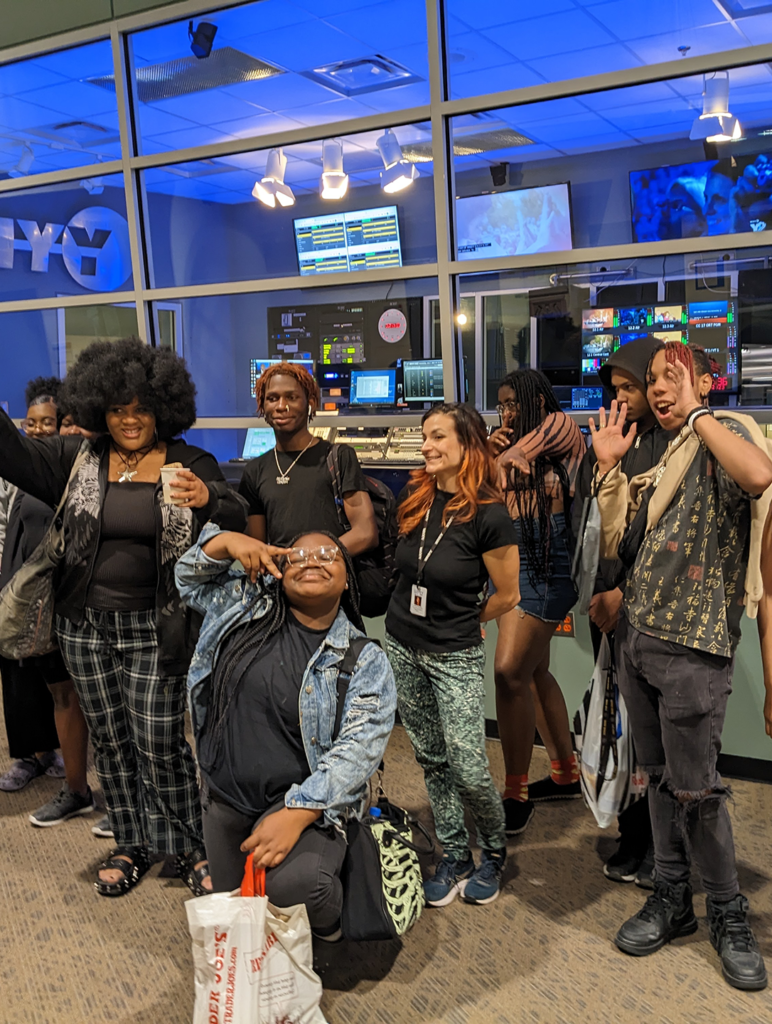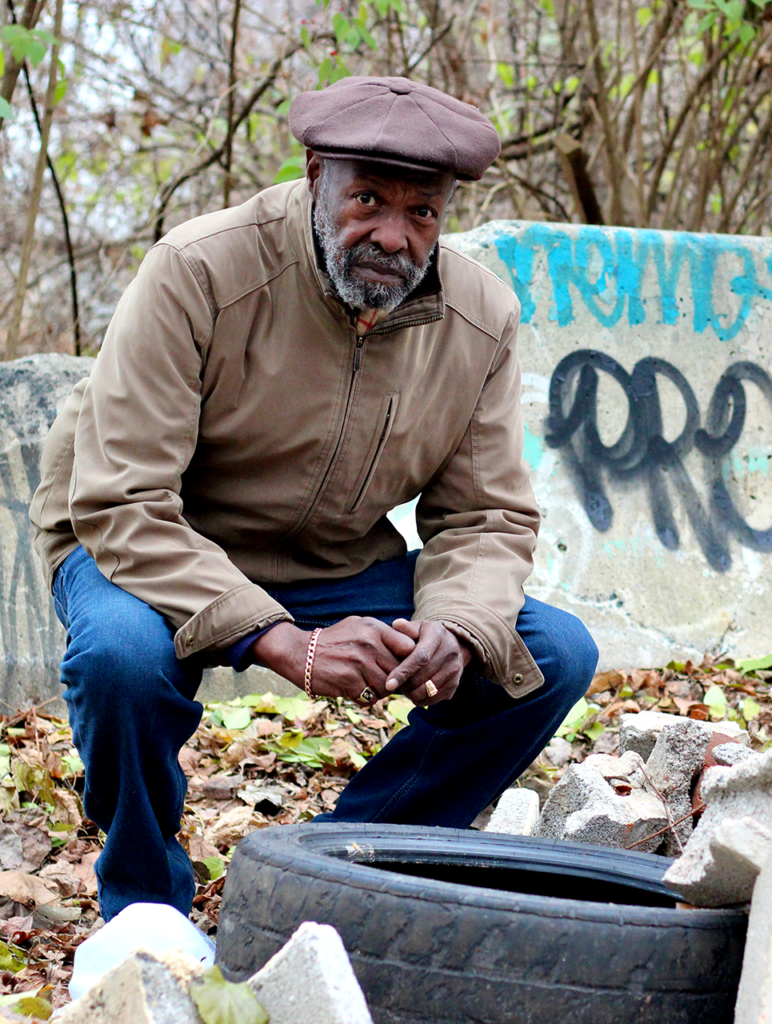On a dock where Wissahickon Creek meets the Schuylkill River, LandHealth Institute deputy director Mayci Shimon steadies kayaks as paddlers carefully shimmy in, some for the first time. Despite the rumble of SEPTA traffic on a nearby bridge, the Philadelphia Canoe Club offers a serene escape. Nestled away, the historic, 119-year-old house aglow with the twilight sunset serves as one of LandHealth’s bases for their inaugural summer paddling events. Through this new program, anyone can hop in a kayak and explore the water at no cost, no experience necessary.
This year LandHealth set out on a mission to increase public access on Philadelphia’s upper Schuylkill, thanks to a grant from the William Penn Foundation. Shimon recalls that the process of finding launch points was more challenging than expected. “It’s been a lot of trial and error, but something that we’ve been really passionate about trying to improve and provide. There isn’t a lot of opportunity up here to get on the water unless you’re paying to be in a rowing club.”
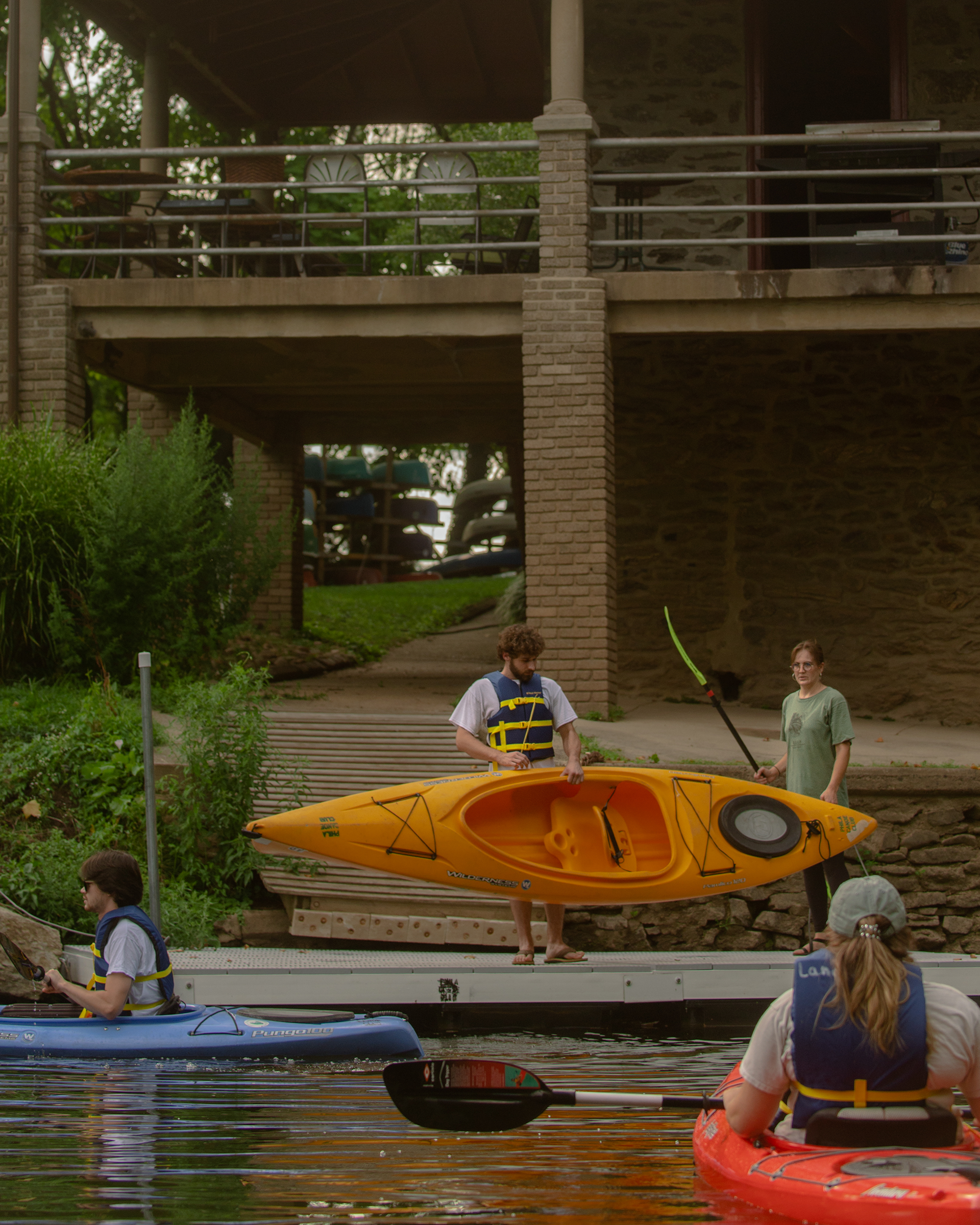
After an extensive search, LandHealth identified three sites enthusiastic to host free guided paddles and open community kayaking days: the Dragon Boat Dock on Martin Luther King Jr. Drive, East Falls River Landing and the Philadelphia Canoe Club. Throughout the summer, guided paddles and open-style boating days alternate between these locations.
The program is complemented by weekly water quality tests conducted with the assistance of Riverways, a collaboration of six nonprofit organizations (including LandHealth) dedicated to connecting the Philadelphia and Camden communities to urban waters. Stefanie Kroll, Riverways’ project director, emphasizes that our river systems aren’t as dirty as many believe. While heavy rainfall can cause combined sewer systems to release runoff and sewage into the water — which Kroll estimates happens about 50 times a year — industrial pollution has significantly decreased. Additionally, the upper portion of the Schuylkill north of Boathouse Row is free from combined sewer systems.
The more you’re interacting and in touch with something, the more you’re likely to care for it.”
— Mayci Shimon, LandHealth Institute deputy director
Fourteen-year-old Justin Seahorn feels the transformative effects of being out on the water. “It’s a really cleansing thing to do. It calms me down, and it’s also a good workout,” he says. Seahorn is a LandHealth “ProFESSer,” part of the Program for Future Environmental Scientists and Stewards (ProFESS). This discovery program enables students to learn about and become stewards of their natural environment, exploring known but often overlooked places. “It’s fortifying my knowledge. We go to those places and learn about what happens right under our noses,” Seahorn explains.
For Shimon, the rainbow array of kayaks on an urban waterway mainly dominated by crew shells and dragon boats is a welcome sight and a step toward expanding recreation on the Schuylkill. “It’s that rhetoric of the more you’re interacting and in touch with something, the more you’re likely to care for it,” she says. “It’s very true.”
